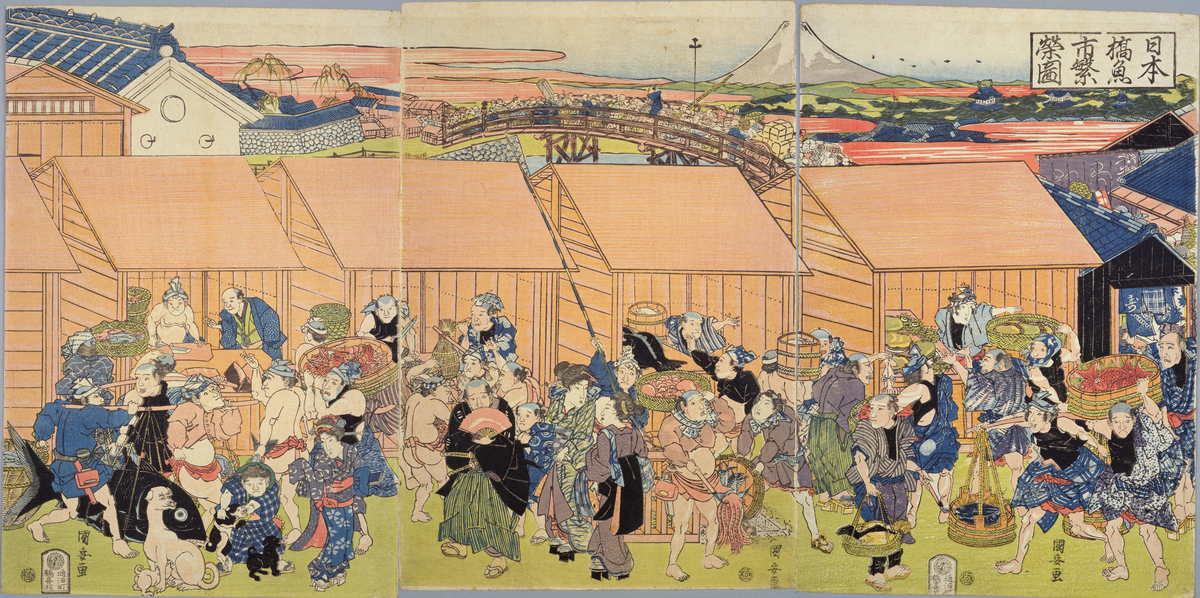Abe Kōbō - the (market form(ation) of the) state

… in feudal society, a phenomenon that was strictly unique to Japan and Europe could be seen in the fact that cities were places of confinement. People did not flee to the city; rather, they were trapped there. For example, Jews were strictly denied the right to buy land. They were denied the right to engage in any labor involving land. Instead, they could enter the moneylending business, for instance, which was then very small in scale due to the fact that the money economy was not yet highly developed. Christians, in particular, had a code of morals in which involvement in moneylending was regarded as impure. This is precisely why they permitted Jews to engage in such work. …
With the increasing power of the money economy, those Jews who had been confined to the city became increasingly powerful. Cities had previously been mere dwellings for the luxury of the regional feudal lords and landowners, but now they acquired special meaning. Despite the fact that moneylending violated Christian law, these businesses were also confiscated from Jews. This era clearly marked the beginning of the Holocaust.
… this dense economic background [to their expulsion and to racial discrimination against Jews]. There was no such opposition in the case of Japan, where the gradual process of urban expansion went smoothly.
In Japan, the relation between merchants and warriors was such that, by the end of the Edo period, merchants were no doubt effectively judging these overlords by the amount of their crop yields. In principle, a commodity exchange economy ruled, but what actually took precedence was the money economy. … Ultimately, samurai were controlled by the merchants.
— Abe Kōbō, "The Frontier Within, Part II," delivered as a lecture, 1969, in The Frontier Within: Essays by Abe Kōbō, translated by Richard F. Calchman, 2013, 149-172, 153
The so-called samurai became a mere guarantee of social position, one that could be bought and sold with money. By infusing this class with new merchant blood, the samurai class was also able to harness the energy that in part shaped the period.
… the conflict between merchants (i.e., those who controlled money) and those who ruled over land did not emerge as flagrantly as it did in Europe, with the result that no figure comparable to the European Jew ever appeared.
…
One hears that the Jews, confined within the city, acquired the ancient traditions of urban society, but that is untrue. The point is that the Jews were confined within those traditions. During periods in which rule over land predominates, residents of cities are in a sense alienated. Although this trend is reversed with the advance of urban society, the conditions for building a uniquely urban Jewish culture—which was absent in both Europe and Japan—were in any event long imposed from outside. This actually led to the extreme universalization of Jewish culture.
— 154-155
… urban structures dominate the state …
… Jewishness has gone beyond Jewish society and has come to be accepted among non-Jews as a certain universality.
In the case of Europe, there have been a large number of Jews working at the core of revolutionary movements. It was for this reason that many Jews poured into Russia, but with the rise of Stalinism, they were eventually driven out and exiled, with many fleeing to America and England. …
In Hitler’s anti-Semitic diatribes … it is clear that his image of the good German was really an image of the good farmer. This point appears in his own writings.
… Neither [Tolstoy nor Dostoevsky] was seen as part of revolutionary literature, but Tolstoy was regarded more favorably. This was due to the fact that Tolstoy saw the future in terms of the peasants. In contrast, while it might be too much to say that Dostoevsky saw the future in terms of the urban lumpen proletariat, he did perceive a certain kind of history. The Soviet Union thus began supporting the policy of one-nation socialism through the mediation of the state as Jews and other urban elements gradually came to be hated and boycotted.
…
— 155
A similar phenomenon can be said in Japan. People’s experience very much differs according to age, and I am sure that all of you react with quite different nuances of feeling, but there are two types of people: the first associates the good and beautiful with the earth or land, that is, the rural. This type senses or feels that good things can be found in the countryside, whereas the second type finds only brutal and vicious things there. Even among us, it is actually more common to regard the city as the root of all evil.
— 155-156
...
I'd been reading Dederer on the case of Wagner's antisemitism, where she cites this 5 hour film, The Confessions of Winifred Wagner, 1975,
(the Dederer book, Monsters, 2023 is confusing and jumbles together too many liberal causes. In the case of Wagner, contra Stephen Fry, in his doco, Wagner and Me, 2010,
...)


